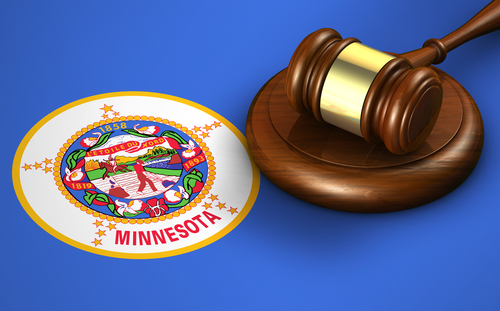Voluntarily intoxicated rape victims aren’t ‘mentally incapacitated,’ top state court rules

Image from Shutterstock.com.
Victims who willingly consume alcohol or drugs before they are sexually assaulted aren’t “mentally incapacitated,” the Minnesota Supreme Court ruled Wednesday.
The 6-0 decision, written by Justice Paul Thissen, held that under the state legislature’s definition of mentally incapacitated, “substances (including alcohol) which cause a person to lack judgment to give a reasoned consent must be administered to the person without the person’s agreement.”
The Minneapolis Star Tribune and the Pioneer Press have coverage. Hat tip to How Appealing, which also links to the opinion.
The Minnesota Supreme Court granted Francios Momolu Khalil, who had been convicted of third-degree criminal sexual conduct, a new trial. According to its opinion, he met a woman who had been denied entry to a bar because of her intoxication. The woman agreed to go to a party with him but later passed out at the house and allegedly woke up to him raping her.
According to Minnesota law, “‘mentally incapacitated’ means that a person under the influence of alcohol, a narcotic, anesthetic or any other substance, administered to that person without the person’s agreement, lacks the judgment to give a reasoned consent to sexual contact or sexual penetration.”
Based on its interpretation of the law, the Minnesota Supreme Court held that “the text, structure and punctuation of the legislature’s one-sentence definition of mentally incapacitated supports Khalil’s interpretation of the statute—namely, that a person is mentally incapacitated only if under the influence of alcohol administered to the person without the person’s agreement.”
In its opinion, the state supreme court reasoned that Khalil’s conduct would be considered fifth-degree criminal sexual conduct—a gross misdemeanor, rather than a felony—under the law.
“Whether conduct like Khalil’s should constitute a higher-level offense is not a question we have authority to answer,” the court said.
The Wednesday decision comes after a new report by a working group responsible for identifying gaps in Minnesota’s sexual assault law urged legislators to adopt stronger protections for victims of alcohol-related crimes, the Minneapolis Star Tribune reports. The report found that current law hinders the prosecution of cases in which someone is voluntarily intoxicated but unable to consent.
“This has been a problem specific to Minnesota for a long time,” said Lauren Rimestad, a spokeswoman for the Minnesota Coalition Against Sexual Assault, told the Minneapolis Star Tribune.
She also said “Judge Thissen’s decision just clarifies that our law needs to be fixed through the legislature, not through courts.”
Minnesota State Rep. Kelly Moller, DFL-Shoreview, has introduced legislation to amend the third-degree sexual misconduct statute to include those who are intoxicated and incapable of consenting to or understanding a sexual encounter.
Write a letter to the editor, share a story tip or update, or report an error.


